Tu Be Shevat at Beth El
Shabbat Shalom to you all! See you tonight at services. We rescheduled last week’s speaker, Jami Dajman, to this evening, and we look forward to having her share her inspiring story of her family’s survival of the Holocaust. Jami will say a few words during tonight’s Dvar Torah. We also send our thoughts to Barry for a refua shlema, a speedy recovery. Get well soon and we are all thinking about you! Our Sunday school families will join us this Sunday for our hybrid Sunday school, and our sisterhood will enjoy our book club meeting at 7:30 PM this Sunday. Happy 93rd birthday to our founding member Minnie Rice! Ad 120! We hope you have a safe, healthy, and restful shabbat. Tonight’s Friday evening services will begin at 7 PM. Can’t wait to see you in person or on zoom.Friday Night Zoom Link:https://us02web.zoom.us/j/82884019311PASSWORD: shalomCantor Ben-Moshe’s Weekly Message:Our parshah this week is one of two that are named after non-Israelites. Parshat Balak is actually named after a villain, the Moabite king who hires the non-Israelite seer Balak to curse the People of Israel (of course, his curse is turned into a blessing). This week’s parshah though, is named after a hero-Yithro, Moshe’s father in law. Yithro comes to Mt. Sinai after the Exodus, accompanying Moshe’s wife Tzipporah and their sons Gershom and Eli’ezer. He notices that Moshe is spending long days hearing every question and dispute of the People, and suggests a system of lower courts to reduce the burden on Moshe and the Israelites. Moshe takes his advice, born of years of experience in tribal leadership, and sets up the court system.Moshe could, of course, have refused to take Yithro’s counsel. After all, he was the Prophet, the greatest of them all, who spoke with God in a waking state and not in a dream or a trance. He could have said, as some do today, that the People of Israel do not have anything to learn from others. Instead, Moshe sets an example for us to follow. He learns good lessons from any source-whether that source is Israelite or not. The Sage Ben Zoma says in Chapter Four of Pirkei Avoth, “Who is wise? One who learns from all people”. Throughout the ages, we Jews have learned much from the other folk whom we have encountered-from the medicine, astronomy and philosophy of the Greeks in ancient times and on into our own age. Our spiritual path is, of course our own-we do not look to others for theology. But in other things, even meditation techniques and the like, we can and should look to the wisdom of all humanity, as all of humanity has been blessed in some way with Divine Wisdom. May we always have the courage of Moshe Rabbenu, to set aside our egos and accept good teaching from wherever it may come. Shabbat Shalom.Shabbat candle lighting time 5:54 PMSunday school BERS meet this weekend.We note with sadness the passing today of the mother of Mark Heidenheimer, a past president of Beth El.The family was originally from Cisco, Texas, where Mark’s father owned a dry goods store. The family was active in the Abilene synagogue, where Mark went to Hebrew School and had his Bar Mitzvah. Mark used to go to Abilene for the High Holidays to make sure they had a minyan. Mrs. Heidenheimer was very active in the Abilene Jewish community until she was moved to an extended living location in Plano, to be nearer to Mark and his wife Kathy. We send our deepest condolences to the whole Heidenheimer family. Enjoy some photos of our sweet BERS. Here is Morah Dganit and Kita Alef studying the Olive Tree and Pomegranate Tree in the front yard at Beth El. And Kita Bet with Morah Hadass planting their parsley seeds, which will hopefully grow in time for the Passover seder!

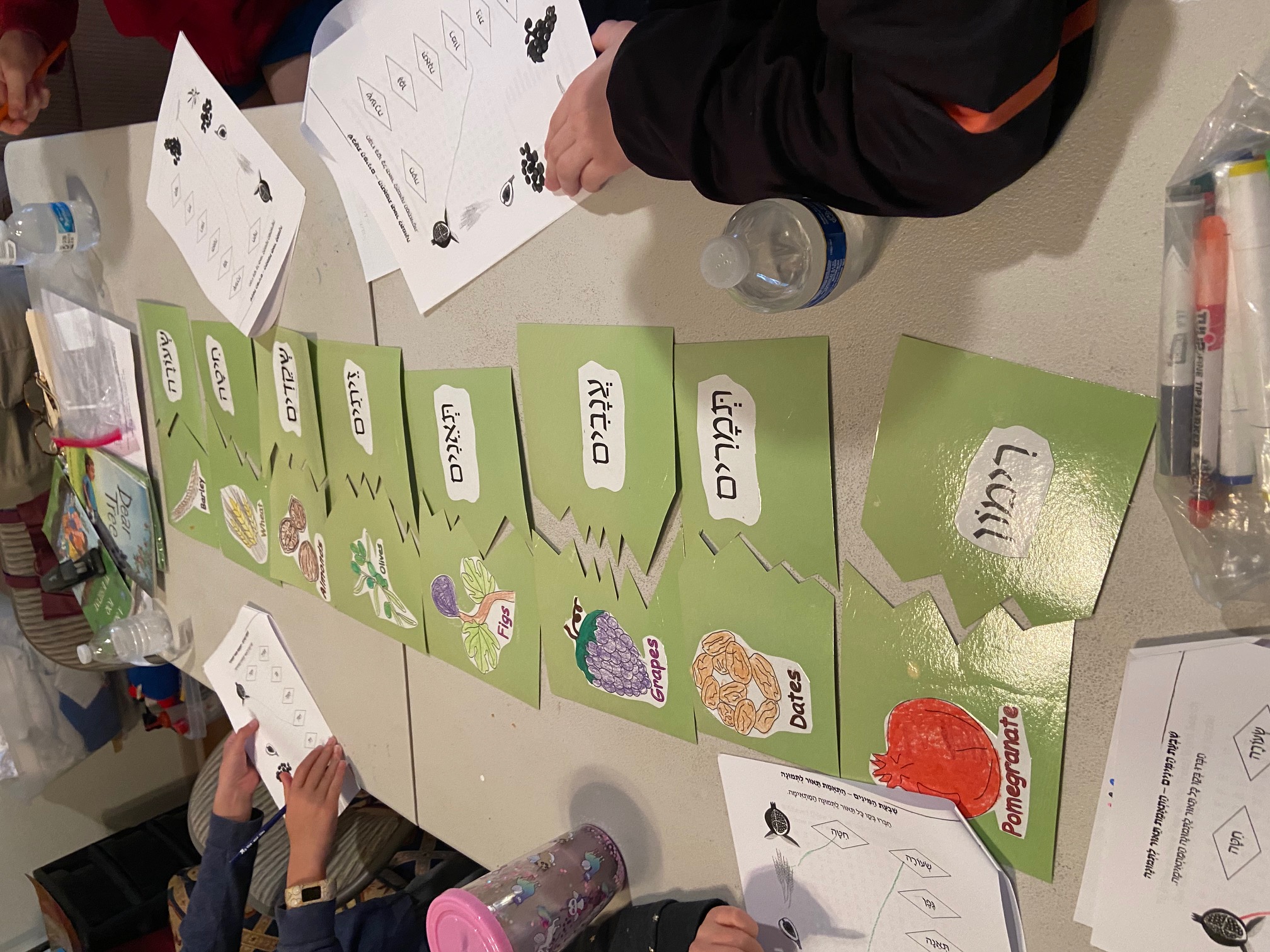
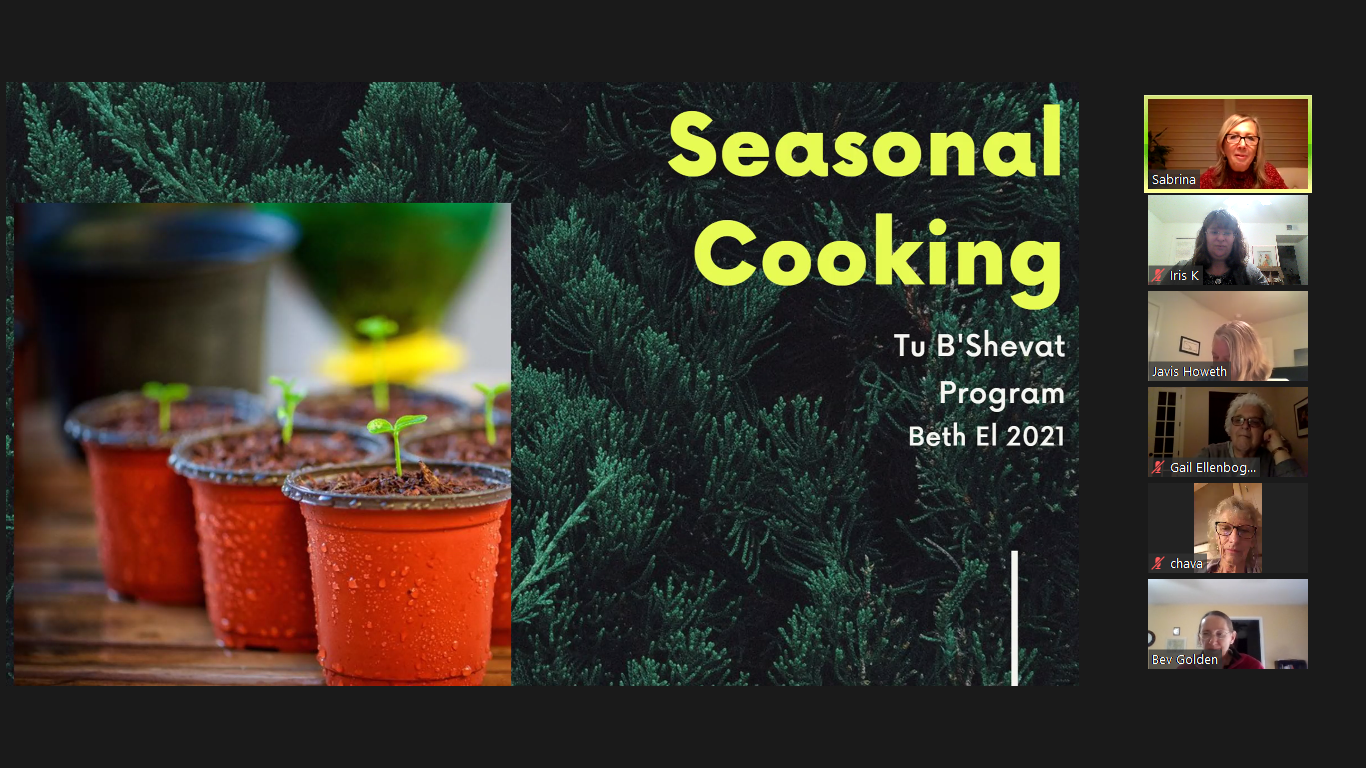
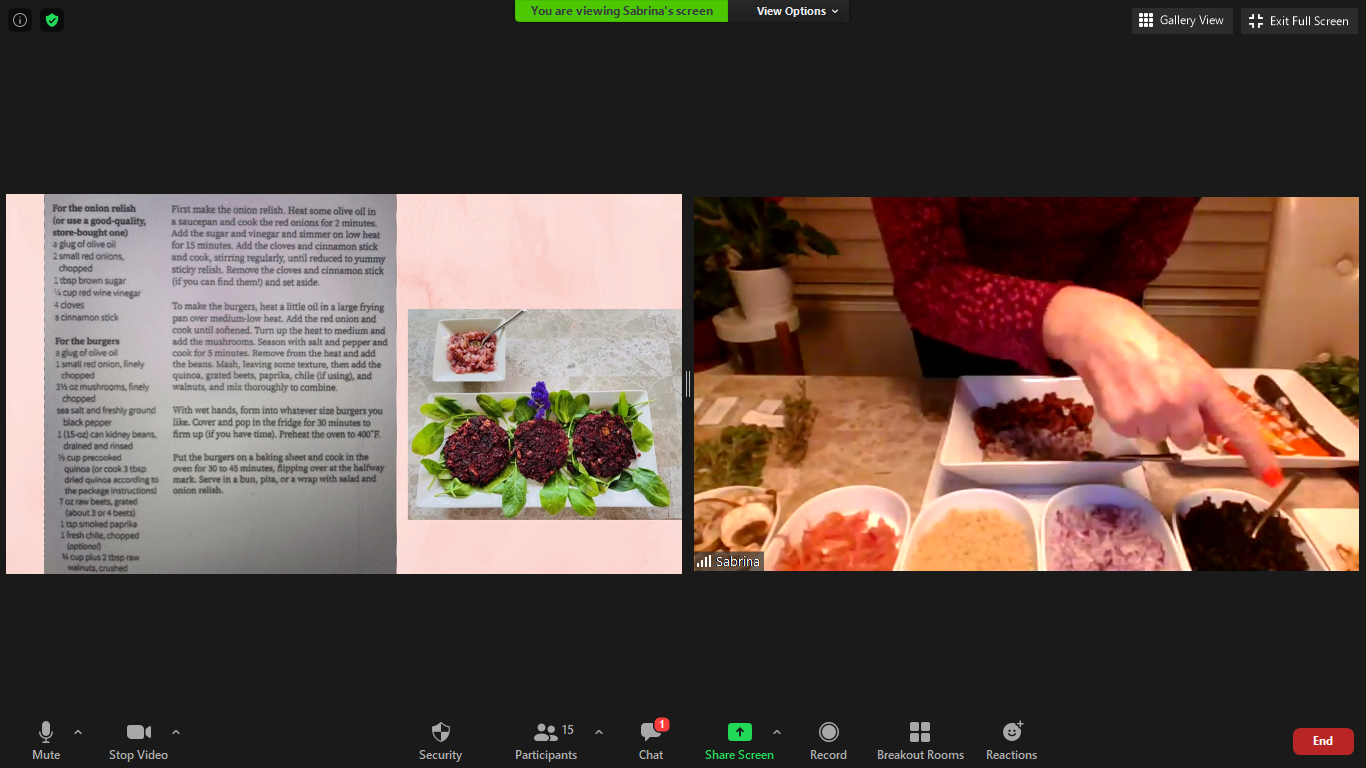
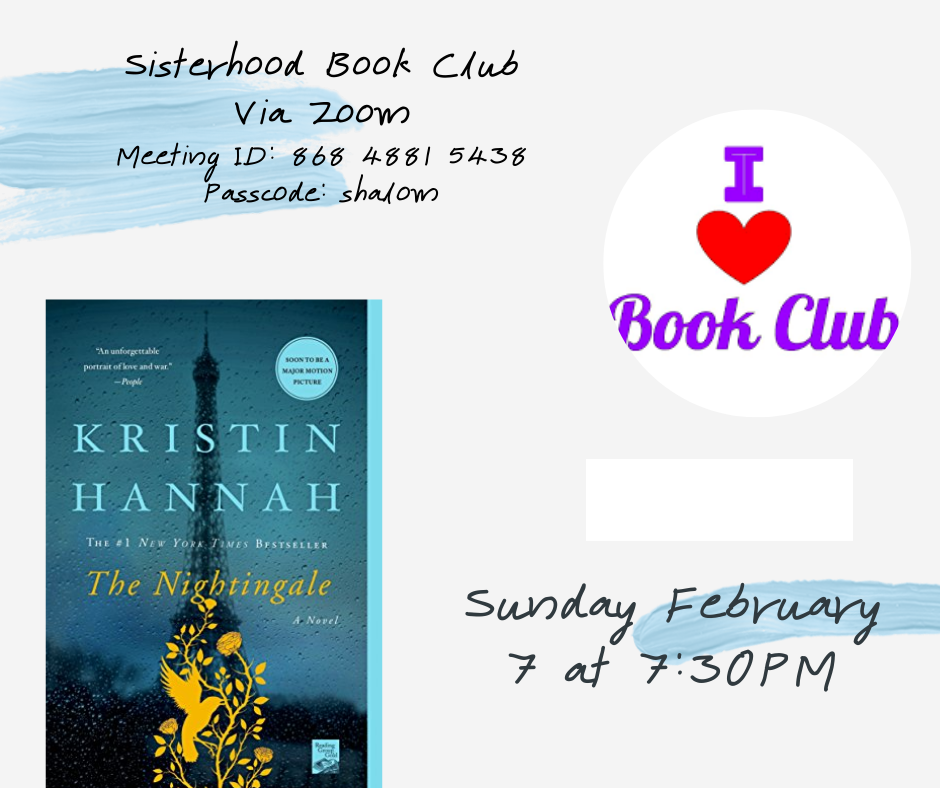 Sisterhood Book Club:
Sisterhood Book Club: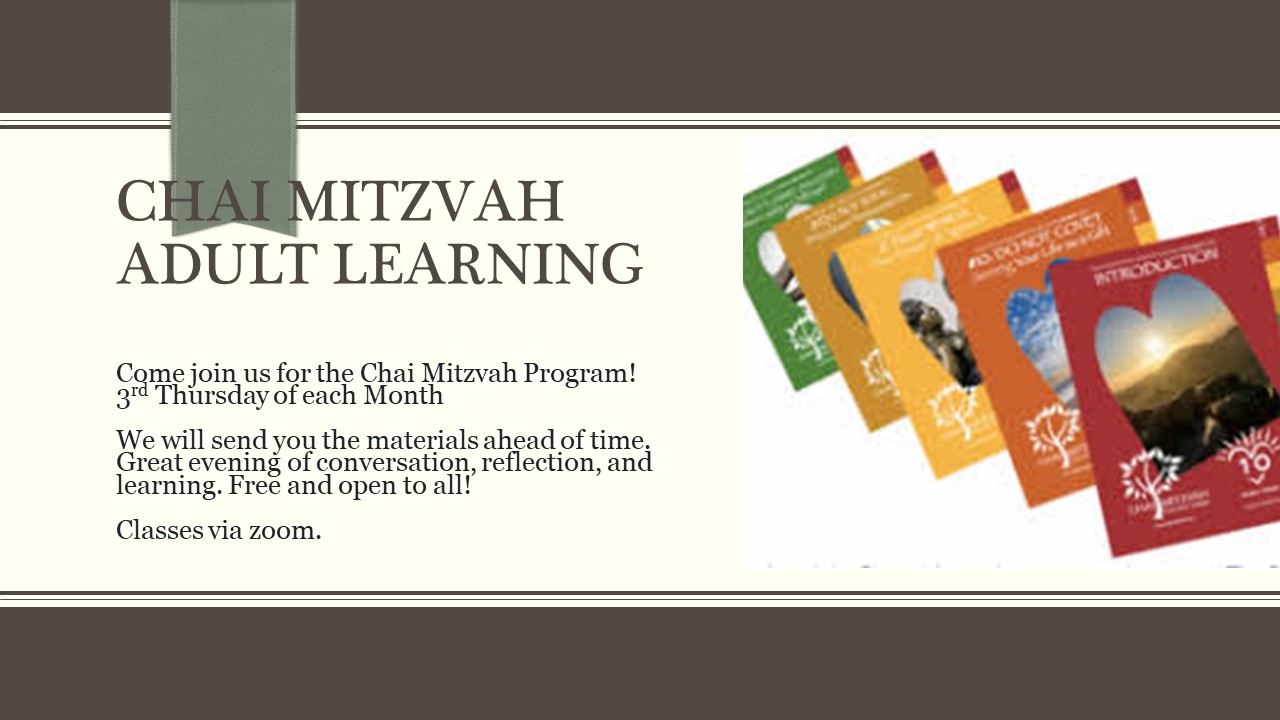
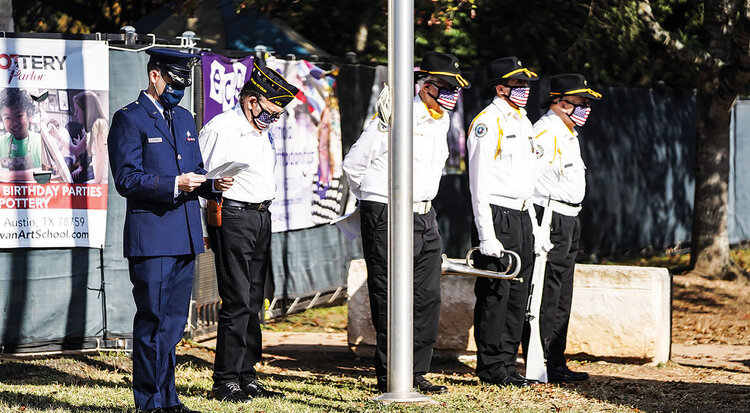 Austin Jewish War Vets Post 757 is very interested in gaining new members. We meet monthly on Zoom and would like to invite all of your veterans to our meetings. They are welcome to sit-in as guests.To join in our next JWV Zoom meeting pleasecontact: Charlie Rosenblum Commander, Post 757Jewish War Veterans of the United StatesAustin, Texas
Austin Jewish War Vets Post 757 is very interested in gaining new members. We meet monthly on Zoom and would like to invite all of your veterans to our meetings. They are welcome to sit-in as guests.To join in our next JWV Zoom meeting pleasecontact: Charlie Rosenblum Commander, Post 757Jewish War Veterans of the United StatesAustin, Texas